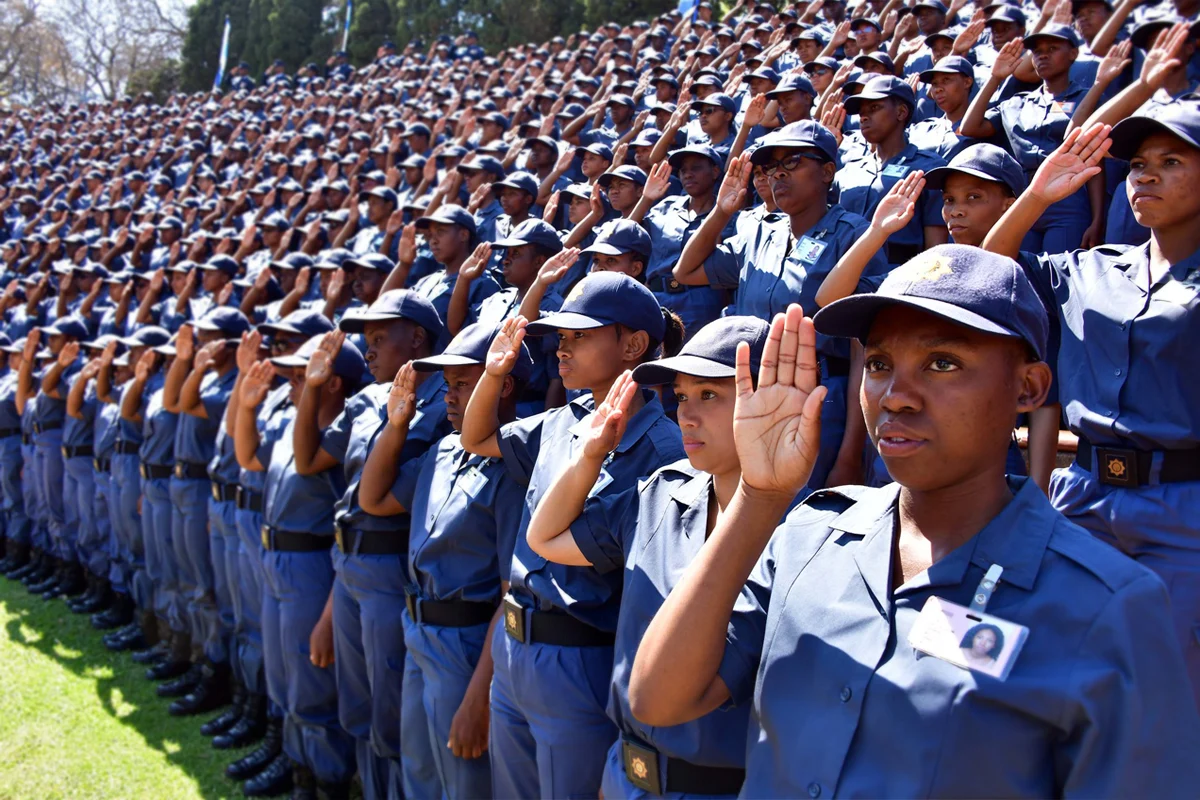
South Africa’s law enforcement is grappling with a significant exodus of specialized Special Task Force members opting to join private security companies, raising pertinent concerns about the country’s policing landscape. This shift in personnel is indicative of broader issues within the South African Police Service (SAPS), reflecting critical resource deficiencies and a lack of incentives to retain highly trained personnel.
The distressing trend of elite SAPS members departing for private security roles has prompted discussions among experts and top officials. KwaZulu-Natal Police Commissioner Lieutenant General Nhlanhla Mkhwanazi recently addressed this concerning issue, highlighting the steady departure of proficient officers and their transition towards employment in the private security sector. This surge in departures has rung alarm bells within the law enforcement hierarchy, with Mkhwanazi flagging the matter to the central leadership.
Criminal law expert Ian Allis shed light on the underlying reasons driving this mass migration. He emphasized the acute resource constraints and burdensome workloads faced by the SAPS, citing a stark misalignment between the rising crime rates and dwindling financial support and training quality for law enforcement personnel. Allis emphasized that the allure of better prospects elsewhere, coupled with increased exposure to corruption within the force, propels these seasoned officers toward private security roles, where they anticipate improved compensation and working conditions.
The escalating crime levels in South Africa, including high-profile incidents like cash-in-transit heists in Gauteng, paint a grim reality for law enforcement. Allis underscored the precarious situations faced by officers, often confronting better-armed criminals while receiving insufficient support and incentives from the government. This dangerous scenario, coupled with eroding trust among fellow officers due to rising corruption, further incentivizes the shift of experienced personnel away from the SAPS.
Contrary to common perceptions, these departing officers are not seeking standard security guard roles. Instead, they are forming elite private crime-fighting units specializing in bodyguarding, safeguarding high-value targets, and offering consultancy services. This transition signifies a broader loss of faith in the SAPS, with private security emerging as a lucrative and reliable alternative.
The burgeoning private security industry in South Africa is a testament to this shift, with approximately 2.2 million registered private security guards, of which nearly 600,000 are actively employed. This stands in stark contrast to the SAPS’ limited manpower of 140,000 officers tasked with serving a population exceeding 60 million.
Addressing the gravity of the situation, Police Minister Bheki Cele acknowledged the inability of the SAPS to meet the escalating demands for policing. He attributed this shortfall to the department’s inadequate financial resources and the widening gap between the rising need for effective policing and the SAPS’ operational capabilities.
Deputy Police Minister Cassel Mathale echoed similar sentiments, stressing the impracticality of the current budget in reinstating police numbers to the required 150,000 mark. Even with this target met, it remains insufficient to cater to the escalating demands amidst South Africa’s population growth.
The unfolding scenario within the SAPS underscores a pressing need for substantial reforms, increased financial support, and improved working conditions to retain experienced personnel and effectively tackle the surging crime rates. As the country grapples with these challenges, the exodus of elite officers to the private security sector serves as a stark reminder of the urgent need for comprehensive solutions to fortify South Africa’s law enforcement capabilities and restore public trust in policing institutions.
This website uses cookies.